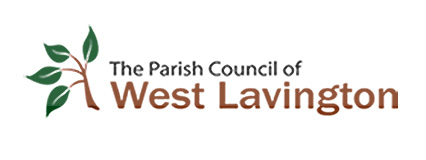Our Corporate Plan
The Parish Council seeks to add value to community life by providing a democratically accountable forum, operating within available legislation, to provide leadership, influence, support and information for all that live, work or visit the parish area. The Council also manages a number of facilities and assets and recognises that it must use its resources economically, efficiently and with due regard for the environment. Through a planning process the Council seeks a shared vision and direction, to protect what is important and consider new ways of getting things done that includes harnessing the skills and talent from within its own communities.
Building stronger and more resilient communities means making choices about how the community receives its services from this and other organisations, or even whether some are received at all. By setting out the issues facing it, the Parish Council can plan for the future.
Our Code of Conduct
Our Code of Conduct for Councillors is also taken from a national Model, and is supported by Wiltshire Council, which also provides the local Standards Board to consider complaints.
Councillors will have in mind the national guidance prepared for them and contained in the Good Councillors Guide.
If you would like to make a complaint regarding a councillor and the Code of Conduct then you should follow this link to Wiltshire Council. They manage the procedure for investigation and reporting, on behalf of all Town and Parish Councils in Wiltshire. Their recommendations will be made back to the Parish Council which will consider what steps, if any, are to be taken. This procedure is for individual Councillors, and not used for the Council as a corporate body.
Member & Officer Protocol
The protocol is drawn from a national model and covers:
Register of Interests
Councillors are required to make a declaration of disclosable pecuniary interests, and have volunteered to disclose their non-pecuniary interests, by placing them on a Public Register that is hosted on Wiltshire Council’s website. You can view the register for this, and any other parish in Wiltshire here.
General Complaints
Occasionally, things go wrong and we would like the opportunity to put them right, if we can, as soon as possible. If you would like to make a comment about how the Council has, or has not, dealt with an issue, then you should follow the guidance set out in the linked Policy.
Comments or complaints about the performance of other public services may be received by this Council, and as we provide ‘advocacy’ on behalf of our community we can channel those comments to the most appropriate recipient. To ensure we receive the detail needed to judge how best to handle the matter, it should be received in writing.
Data Protection
West Lavington Parish Council has a duty to protect personal information and will process personal data in accordance with the General Data Protection Regulation 2018 and the Data Protection Act 2018 and any amendments to the Act. The data will be stored on computer and/or manual files. You have a right to a copy of your personal information held by any organisation, with some exemptions.
To gain access to your personal data held by the parish council or if you have any Data Protection concerns please contact the parish council’s Data Protection Officer (the Clerk to the Council) on 07782 251464 or email clerk@westlavington.org.uk.
Risk Management and Risk Register
As part of good governance, the Council has made an assessment of the risks it faces and the likelihood that any of these may impact on its ability to function efficiently.
The Risk Management Committee meets twice per year to review the Council’s risk, and reports its findings to the Council which are minuted in the core Parish Council meetings.
Our Health and Safety policy
The safety of everyone is our first priority. Our Health & Safety policy statement is in the Download Library, which is reviewed annually. Whilst the Council remains accountable, the Clerk to the Council is the person responsible for putting the policy into practice.
Our Playgrounds Management Policy
The Parish Council and the Playgrounds Advisory Committee recognise that it is important for children and young people to be able to undertake play activities which have an element of risk attached to them, in order that they are challenged and have the opportunity to develop their skills and abilities.
The policy explains how that risk is managed, and the procedures for inspecting and looking after the equipment that is provided for everyone to freely enjoy
Our Equalities and Inclusion policy
The Council makes its services, activities and information available to as many people as possible, whilst recognising that everyone is different. The Council seeks to recognise and appreciate the value of diversity that exists in our community and society generally, aiming specifically to promote the inclusion of groups and individuals within our communities that are under-represented, disadvantaged or excluded.
Our Communication, Consultation and Engagement Policy
The Council has set out how it will consult on key issues with the communities it serves, and how it will engage with residents, businesses, groups and organisations across the parish.
The website will announce consultations as they are launched, including how you can get involved on specific issues.
The Policy outlines how it manages all forms of communications such as letters, emails, instructions and social media.
Our Grants Policy
The Council welcomes applications for small grants which can support groups and organisations that make a contribution to our communities. The circumstances in which this may happen, and the procedure for applying is explained in the document.
